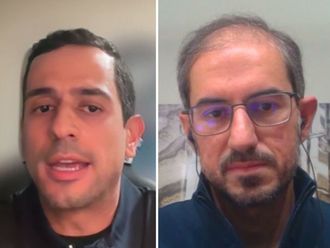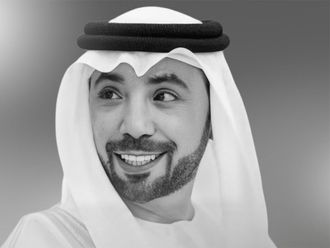
Abu Dhabi: Patients are being grossly over-billed and subjected to unwanted medical procedures and tests as doctors try to generate higher revenues for hospitals and clinics in order to earn higher commissions, XPRESS can reveal.
Industry sources say the unethical practice is rife in the UAE with doctors taking anything between 25 and 50 per cent cuts from the total revenue they generate for hospitals through consultation and medical procedures, including surgeries.
A source at a private hospital in Abu Dhabi says general practitioners receive 20 to 30 per cent commission on lab tests they prescribe. “We have files here that indicate a large percentage of patients who consult our general practitioners for common cold or sore throat are subjected to tests for tonsillitis. Lab tests and CTC scan are routine, even if unnecessary,” said the source requesting anonymity.
Insurance companies say millions of dirhams have been claimed in excess by hospitals.
Andre Daoud, chief business officer of NEXtCARE (third-party administrator handling 82 insurance companies), told XPRESS that some private health care providers have the tendency to offer financial incentives in order to attract and retain talented and experienced medical professionals; however, he questioned how balanced this could be and whether it aligns with patient satisfaction and social responsibility.
He said incentives should be based on quality of care which can be measured through patient surveys and feedback channels.
“If incentives are quality-based and not driven by revenue generation, they will have a positive long-term impact on the quality of health care offered in private hospitals,” said Daoud.
An official from Arab Orient Insurance Company said there is a sharp rise in insurance claims by hospitals, but not many people are willing to disclose it. “Overbilling a patient cannot be easily contested as it is the professional discretion of the treating doctor as to what medicines and tests are to be prescribed,” the official said.
A recently conducted independent survey by Dr Ayham Refaat, founder of medical billing solutions consultant Accumed PM, said 598,000 medical insurance claims worth Dh263 million were filed by 10 private hospitals in Dubai and Abu Dhabi (between 2011 and 2012) of which Dh20.6 million was disputed.
The survey also exposed irregularities and inconsistencies in the diagnostic tests prescribed by various doctors for ailments like diabetes, hypertension, anaemia, thyroid disorders and Vitamin D deficiency.
doctors in defence
However, doctors who spoke to XPRESS said ‘incentivisation’ is not wrong as long as ethics of the profession are not violated.
A practicing orthopedist in Dubai said he does not generally over-prescribe, but gets a commission from the medical clinic he works for. “I have a loyal base of patients. They trust me and I am committed to offering them quality care. So where is the question of corruption?” asked the Indian doctor who said he gets a monthly salary of Dh15,000.
“Definitely the incentives I get forms the bigger part of my income,” he said, without mentioning the exact amount he receives in commission.
When asked whether it is ethical to take commissions and overbill patients, an Indian doctor said it is ‘okay’ to overprescribe medicines as long as patients are not harmed.
“We are not burdening the patients as they have medical insurance coverage. It is okay to prescribe a few tests. The problem of ethics arises when doctors subject patients to unnecessary or avoidable medical procedures or even hospitalisation,” said the senior practitioner.
But not all doctors were so forthcoming about their remuneration. Most vouched they draw monthly salaries and don’t receive commissions. “I do not know what others get. I get a monthly salary — that too a decent one,” said an ENT specialist who works for a reputed clinic in Abu Dhabi.
“I have not heard about any commission given to doctors as I was working in the public sector. I joined a private hospital just five years ago,” said another.
Georgey Koshy, Interventional cardiologist Universal Hospital in Abu Dhabi was candid enough to admit that incentives are a common trend worldwide. “Every place under the sky has it. If you ask me, I am absolutely against it and I do not take it either,” said Koshy.
According to him, doctors cannot be blamed entirely as incentives are offered by private hospitals as part of their marketing strategy. “There will be temptation to overbill when incentives are offered to achieve revenue targets. But again, a doctor who takes incentives can very well uphold his professional ethics and moral high ground if he follows the correct guidelines,” asserted Koshy.
His employer, Dr Shabeer Nellikode, managing director of Universal Hospital, said his doctors are offered an annual bonus but no commission. “We do performance appraisals based on clinical indicators and patient satisfaction and not on numbers. Incentives are offered as yearly bonus for departments to reward their team,” said the specialist neurologist.
B.R Shetty, managing director of the NMC Group of Hospitals which is one of the biggest health care service providers in the sector, said he has always campaigned against putting doctors on incentives.
“It amounts to bribing doctors. None of the doctors in our 10 hospitals in the UAE are offered any sort of commission.”
NMC offers general practitioners salaries ranging from Dh15,000 to 25,000, plus other benefits including housing allowance. “A specialist earns between Dh30,000 to Dh60,000 depending on his experience and we have consultants who are paid anything between Dh80,000 and Dh300,000,” said Shetty.
According to him, if doctors are offered competitive salaries by hospitals, there is no need to lure them by commissions which in turn adversely affects the quality of health care. “A hospital should look after its doctors, but more importantly it should protect its patients from any form of exploitation,” he said.










